| Time | TOPIC |
| 9.00–9.15 am (15 min) | Registration |
| 9.15 - 9.45 am (30 min) | Introduction to The Course
▪Ice Breaking
▪Rules of Games |
| 9.45 - 10.30 am (45 min ) | About Death
▪Clinical death and brain death
▪Common Causes of Sudden Death: Heart Attack, Cardiac Arrest,
▪Introduction for Chain of survival |
| 10.30 am–10.45 pm (15 min ) | Break |
| 10.45–11.45 a m (1 hour ) | Basic Life Support (2015 ECSI and AHA Guidelines)
▪Comparison between 2015 & previous CPR guideline
▪Emergency action principle
▪Concept of CPR
▪Cardiopulmonary Resuscitation (CPR) for adult, child and infant
▪Recovery position |
| 11.45 am–12.4 5 pm (1 hour) | Practical–Basic Life Support
▪CPR for adult, child and infant
▪Speed & Depth of chest compression
▪When to stop CPR
▪Recovery position & purpose |
| 12.45 am–1.45 pm (1 hour) | Lunch |
| 1.45–2.15 pm (30 min ) | Automated External Defibrillator (AED)
▪AED operation
▪AED application
▪Special considerations |
| 2.15–3.00 pm (45 min ) | Practical - Automated External Defibrillator (AED) |
| 3.00–3.30 pm (30 min) | Foreign Body Airway Obstruction (Choking) - Heimlich Maneuver
▪Sign and symptom of airway obstruction
▪Choking management for adult, children and infant
▪Special consideration–obesity and pregnant |
| 3.30–3.45 pm (15 min) | Break |
| |
Course Schedule - Basic Occupationa l First Aid, CPR & AED Training - Day Two (2) | |
| 3.45–4.15 pm (30 min) | Shock
▪Causes of shock
▪The progression of shock
▪Care for shock |
| 4.15–4.45 pm (30 min) | Bleeding and Wounds
▪Care of wounds
▪Amputations
▪Impaled objects
▪Gunshot wounds
▪Closed wounds
▪Penetrating wound
▪Disease precautions |
| 4.45–5.00 pm (15 min) | Prac tical–Dressings and Bandaging |
| TIME | TOPIC |
| 9.00–10.30 am (1 hour 30min) | Skill Assessment For
▪Basic life support
▪Recovery position
▪Airway obstruction |
| 10.30 - 10.45 am | Break |
| 10.45 - 11.05 am (20 min) | Introduction To First Aid Kit (DOSH Guideline)
▪DOS H requirement
▪Function of each item |
| 11.05–11.3 5 am (30 min) | Burns and Scalds
▪Degree of Burn
▪Management of burns & scalds
▪Chemical Burn |
| 11.35–11.50 am (15 min) | Pra ctical–Rescuing & Moving
▪Shoulder Drag
▪Ankle Drag
▪Human Crutch
▪Cradle Carry
▪Piggyback Carry
▪Firefighter Carry
▪Extremity Carry
▪Two Handed Seat Carry |
| |
| 11.5 0 - 12.3 5pm (45 min) | Practical - Bone, Muscle and Extremity Injuries
▪Bone injury (fractures)
▪D.O.T.S
▪Sprains & Strains
▪RICE
▪Types of splints
▪Splinting guidelines
▪Slings
▪Splinting specific areas |
| 12.3 5–1.00 pm (2 5 min) | Practical - Spinal Injuries & Patient Transportation
▪Spinal injuries
▪Recognizing spinal injuries
▪Care for spinal injuries
▪Immobilizing the head and spine
▪Log roll
▪Helmet removal
▪Applying collar |
| 1.00–2.00 pm (1 hour ) | Lunch |
| 2.00–2.15 pm (15 min) | Patient Assessment
▪Scene size - up
▪Primary and secondary survey
▪Medical History |
| 2.15–4.00 pm (1 hour 45 min ) | Mock - drill and Skill Assessment
▪Scenario based learning (complicated emergency situations)
▪Role play and team work
▪The strength and weakness on oneself
▪Post mortems and de - briefing |
| 4.00–4.15 pm | Break |
| 4.15–4.45 pm (30 min) | Written Assessment–Multiple Choice Questions |
| 4.45–5.0 0 pm | Evaluation and Closing |
 Elim Tsan
Elim Tsan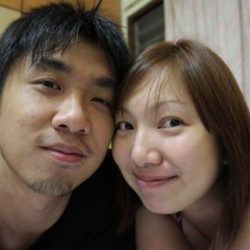 Kam Weng Ho
Kam Weng Ho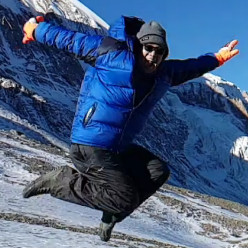 Adeno Ong
Adeno Ong Jason Wee
Jason Wee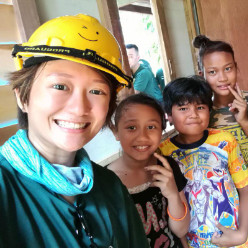 Xin Yu Lim
Xin Yu Lim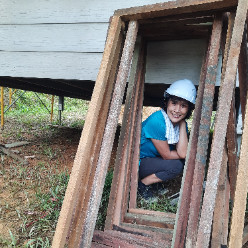 Michelle Ong
Michelle Ong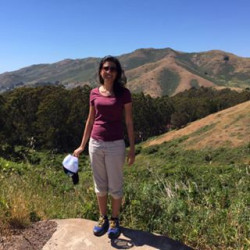 Nadrah Zaabar
Nadrah Zaabar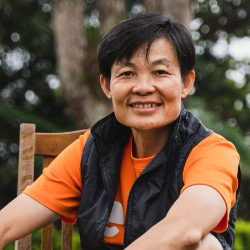 Esther Chit
Esther Chit Alvin Chew
Alvin Chew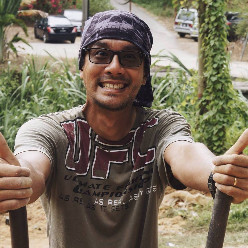 SooAun Kok
SooAun Kok Jix Foo
Jix Foo Stephen To
Stephen To